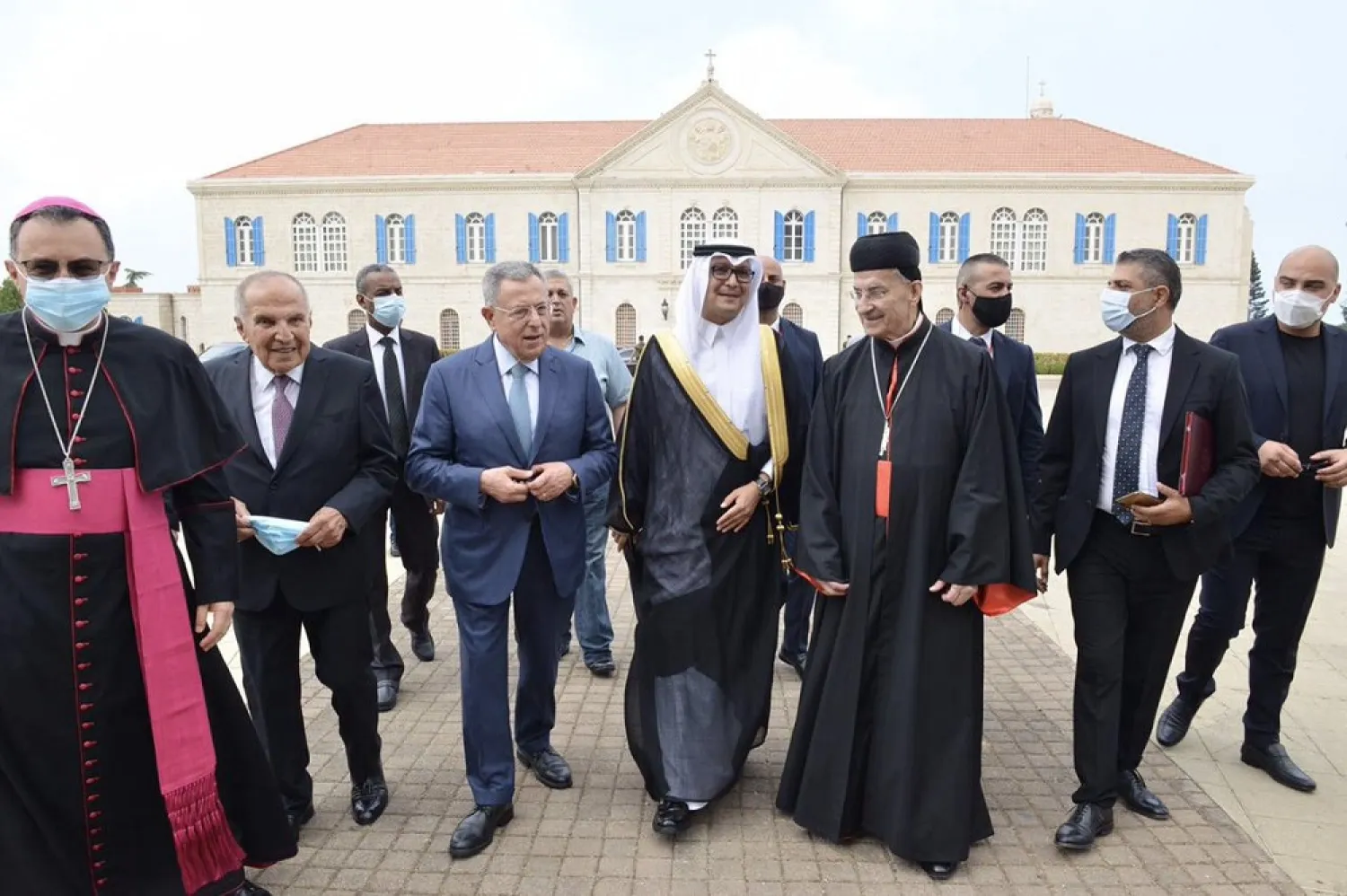Lebanese Maronite Patriarch Beshara al-Rai stressed on Thursday that Saudi Arabia “has never violated Lebanon’s sovereignty and independence.”
It has never “violated its borders or involved it in wars. It has not obstructed its democracy or ignored its state,” he added.
Rather, the Kingdom has “long supported Lebanon at Arab and international arenas and has offered it financial support and invested in projects that were part of its economic rise and reconstruction,” he remarked.
“Saudi Arabia has long supported reconciliations and solutions,” he continued. “Saudi Arabia has understood the meaning of Lebanon’s existence and its value at the heart of the Arab world. It has never sought to burden it with conflicts, but it has always jumped to safeguard its neutrality and secure its sovereignty and independence.”
Rai made his remarks during his sponsoring of the release of a book, “Masirat Hiwar Waietidal” (A Stride through Dialogue, Moderation: The Relationship of the Maronite Patriarchate with the Kingdom of Saudi Arabia), by Father Antoine Daou. The ceremony was held at the seat of the Maronite Patriarchate at Bkirki. The event was attended by Saudi Ambassador to Lebanon Walid Bukhari.
Rai continued: “I was honored by meeting Custodian of the Two Holy Mosques King Salman bin Abdulazizz and Crown Prince Mohammed bin Salman during my visit to the Kingdom on November 13, 2017. I sensed during the visit their love for Lebanon and at the same time their extreme lament at the deterioration in the country.”
In an address, Bukhari hoped that the Lebanese parties would “prioritize Lebanese higher interests to confront challenges facing the country.” Some of these challenges include attempts by some sides to meddle with the close relations between Lebanon and the Arab world and to drag it into conflicts that contradict the Lebanese constitution.
He rejected the rhetoric of strife, division and fragmentation. There is no place for rhetoric that eliminates Lebanon’s Arab identity.
Moreover, he stressed the importance of preserving the diversity and coexistence that was consolidated by the Taif Accord, which protects Lebanon’s national unity and civil peace.
He described the release of the book as an occasion that embodies the deep historic ties between Saudi Arabia and the Maronite Patriarchate and represents a real guarantee to preserving “a free, sovereign and independent Lebanon.”
He used the occasion to underscore Saudi Arabia’s role in promoting the culture of peace, moderation and coexistence and preserving human dignity.
“Because we are advocates of peace, then the future of the Orient is peace, away from intolerance, sectarianism and extremism regardless of their sources and justifications,” he declared.
Rai noted that Saudi Arabia was the first Arab country to recognize Lebanon’s independence in 1943. It has respected the Lebanese people’s choices, identity, diversity, traditions and way of life.









